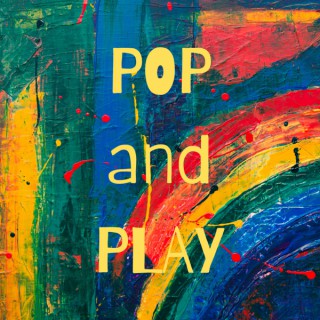Podcast appearances and mentions of John L Jackson
- 5PODCASTS
- 9EPISODES
- 46mAVG DURATION
- ?INFREQUENT EPISODES
- Jan 2, 2025LATEST
POPULARITY
Best podcasts about John L Jackson
Latest podcast episodes about John L Jackson
New Year, Timeless Wisdom! John L. Jackson, Jr., Dr. Jill Bolte Taylor, Valoria Walker and Jack Zhang drop some serious wisdom. I've pulled segments from four conversations to carry us into the new year. Forget new resolutions, try returning to things you know have worked for you already! Theme and other music by Sean Balick.
What does it mean to “decolonize” teaching and scholarship? Why would we want to do that? And how? We take on these questions and more in a panel discussion with social scientists and established scholars of race Lance Gravlee, John L. Jackson Jr., Stephanie McClure, and Yolanda Moses. Some Resources: Blum, Susan D., and Alfie Kohn, eds. (2020). Ungrading: Why rating students undermines learning (and what to do instead). West Virginia University Press. https://www.powells.com/book/ungrading-9781949199826 Harrison, Faye V., ed. (1991). Decolonizing anthropology: Moving further toward an anthropology for liberation. American Anthropological Association. https://www.powells.com/book/decolonizing-anthropology-2nd-edition-9780913167830 hooks, bell. (2014). Teaching to transgress. Routledge. https://www.powells.com/book/teaching-to-transgress-education-as-the-practice-of-freedom-9780415908085 Trouillot, Michel-Rolph. (2003). "Anthropology and the savage slot: The poetics and politics of otherness." In Global transformations. Palgrave Macmillan, pp. 7-28. Wendland, Claire L. (2010). A heart for the work: Journeys through an African medical school. University of Chicago Press. https://www.powells.com/book/a-heart-for-the-work-9780226893273 The Boise State diversity course controversy: https://www.insidehighered.com/news/2021/03/18/boise-state-suspends-diversity-course-1300-students Select works our guests wanted to share with podcast listeners: Gravlee, Clarence C. (2009). “How race becomes biology: Embodiment of social inequality.” American Journal of Physical Anthropology 138: 47–57. Gravlee, Lance. (2021) “How whiteness works: JAMA and the refusals of white supremacy.” Somatosphere. http://somatosphere.net/2021/how-whiteness-works.html/ Jackson Jr, John L. (2013). Thin description: Ethnography and the African Hebrew Israelites of Jerusalem. Harvard University Press. https://www.powells.com/book/thin-description-9780674049666 McClure, SM (2017). Symbolic body capital of an “other” kind: African American females as a bracketed subunit in female body valuation. In Anderson-Fye, EP and Brewis, A (eds.) Fat Planet: Obesity, Culture and Symbolic Body Capital. University of New Mexico Press. McClure, SM. (2020) Living Unembodiment: Physicality and body/self discontinuity among African American Adolescent Girls. Ethos, 48(1): 3-28. Mukhopadhyay, Carol C., Rosemary Henze, and Yolanda T. Moses. (2013). How real is race? A sourcebook on race, culture, and biology, 2nd edition. Rowman & Littlefield. https://www.powells.com/book/how-real-is-race-9780759122734
Haeny and Nathan talk with John L. Jackson, Jr., an anthropologist, filmmaker, and the Dean of the Annenberg School of Communication at the University of Pennsylvania. In this episode John talks us through his days as the host of the radio show “Jackson Attraction” and multimodal scholarship. In their conversation, they learn that scholarship is itself an act of play; that at the intersection of play and art and making is a space for disruption and interruption. Plus they play "Which GIF?" and share "What's Poppin'". Our music is selections from “Leafeaters” by Podington Bear, Licensed under CC (BY-NC) 3.0.Visit tc.edu/popandplay and the episode 2 page to learn more and access resources. Nathan on Twitter: @nrholbert. Haeny on Twitter: @haenyyoon.
Ep. #85: Ethnography & Cultures of Curiosity with John L. Jackson, Jr.
Dean of the Annenberg School for Communication at the University of Pennsylvania, John L. Jackson, Jr. is an ethnographer by training -- and by nature. A "conspicuous listener", he challenges us to nurture the cultures we desire, curiosity among them. Lovely, thoughtful and thought-provoking. This is the second in a monthly series of interviews with the contributing authors to the forthcoming anthology Curiosity Studies: A New Ecology of Knowledge. Stay tuned for the whole series! Theme and other music by Sean Balick. Join us next time when Karen Coltrane and I explore the centrality of curiosity in support of diversity and inclusion.
What if we really look and listen differently, with a purpose -- or as my dad likes to say, "if we change our point of view" -- might we see something new? That was the thread in this week's "Curiosity to Go" segment that pairs John L. Jackson, Jr,, dean of Annenberg School for Communication and ethnographer, with photographer Jason Horowitz. How might we embody that profound level of paying attention?
Ep. #84: Can We Choose to Be Curious? with Asia Ferrin
This week we take a poke at the whole premise: CAN we choose to be curious? American University professor of philosophy Asia Ferrin and I try on various philosophical hats as we explore why and where and how and for whom curiosity might be a choice. Or not. Fascinating! Theme music by Sean Balick. Check out Sean's new album "From the Pines" available on Soundcloud. Join me next time when John L. Jackson Jr., dean of the Annenberg School for Communication at UPenn, is with me to talk about ethnography and cultures of curiosity.
Making Audiences: How What We Watch Shapes Who We Are
Panel 1 of the Symposium on Religious Literacy and Business: Media & Entertainment, moderated by Sarabinh Levy-Brightman and featuring panelists John L. Jackson, Jr., Mik Moore, Joanna Piacenza, Sheila Murphy, and Christopher White. This symposium brings together media professionals and scholars of media, religion, and business to assess the state of religious literacy in the field and the role of entertainment media in shaping the public understanding of religion. Our aim is to foster critical reflection and collaborative relationships between scholars and media professionals in order to improve the religious literacy of the American public and reduce conflict and antagonism by encouraging more complicated, nuanced, and creative representations of religion on screen. Learn more about Harvard Divinity School and its mission to illuminate, engage, and serve at http://hds.harvard.edu/.








